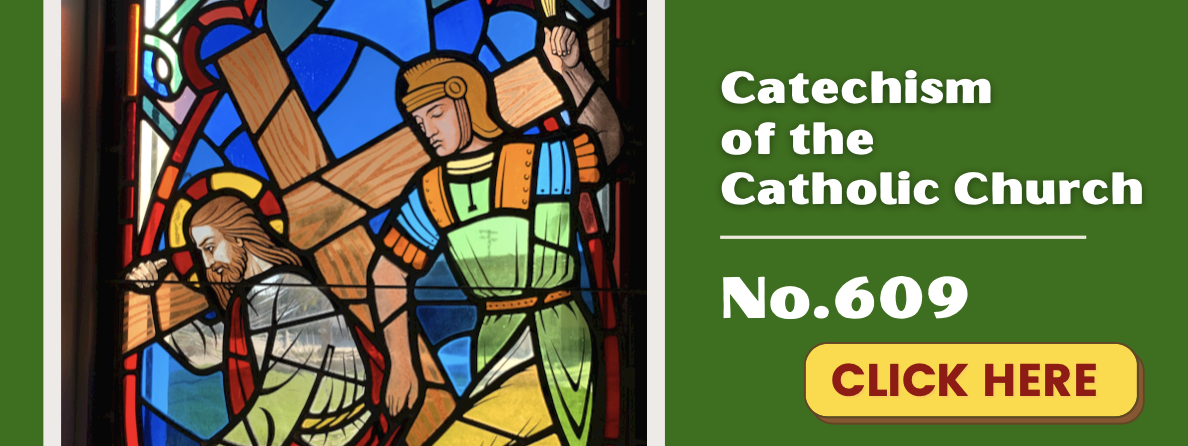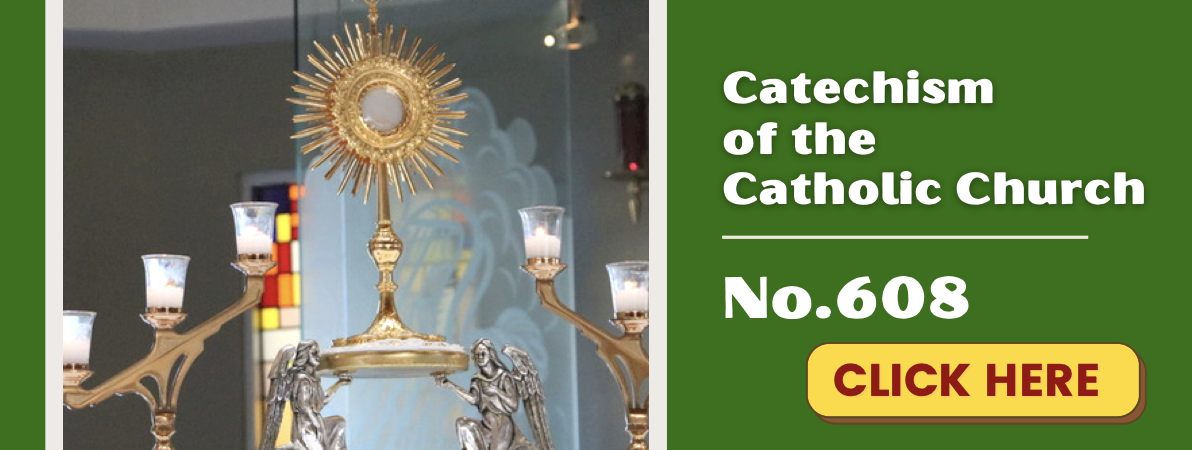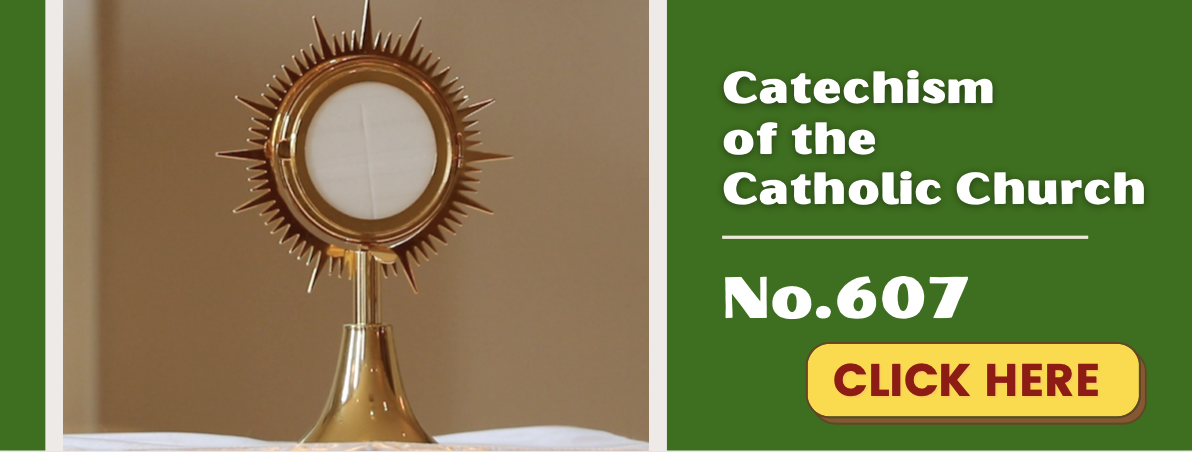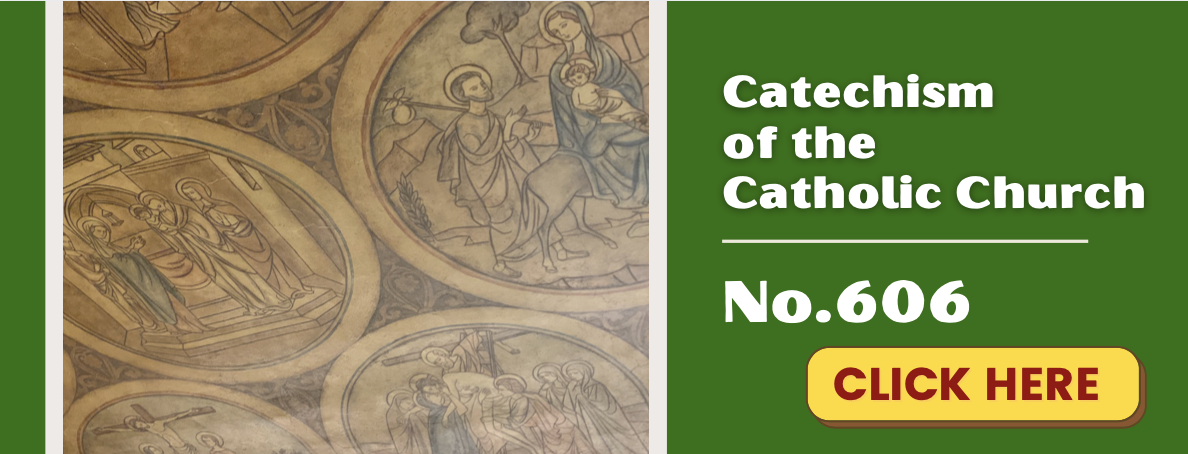Thursday of the Fourth Week in Ordinary Time

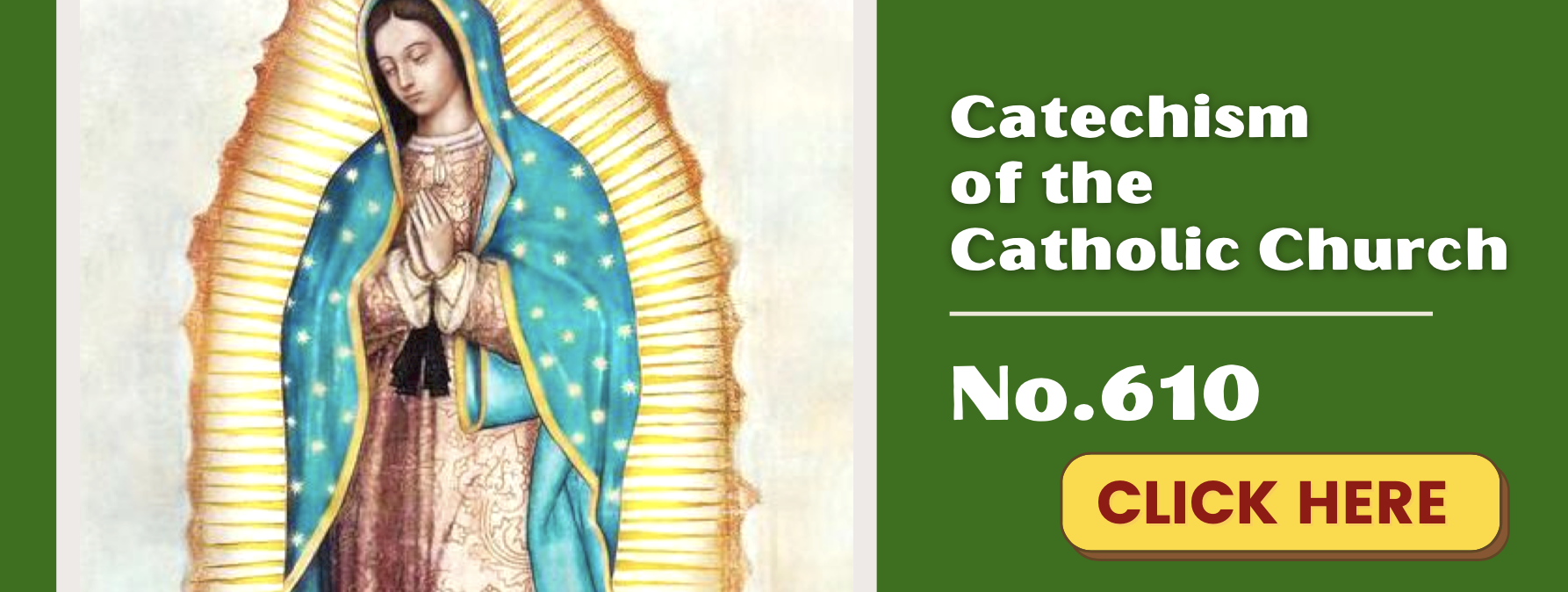

“For greater things you were born.” (Ven. Mother Luisita)
THURSDAY, February 3rd Mk 6: 7-13 “So they went off and preached repentance. The Twelve drove out many demons, and they anointed with oil many who were sick and cured them.”
- Sometimes, the demon we encounter in our lives is the demon of desolation or discouragement. Jesus came as Savior! There are times when our best prayer is, “Jesus, be my Savior now!
CONQUER DISCOURAGEMENT: USE OF BIBLE VERSES! By Fr. Ed Broom, OMV
Our interior state can be compared to the weather changes that change, modify, and vary constantly. One day you awake and there is sunshine streaming through your window pane; the birds are singing joyful songs of praise; the fragrance of spring flowers penetrates and permeates wherever you go; the blue sky and gentle breeze lift your heart; still more, everybody seems to have a winning smile radiating from their countenance. Seems to be the portal of Heaven.
Then the following day presents to you, in marked contrast, a gray, drizzly morning; the sun totally hidden behind the clouds. The cold winter air seems to penetrate your whole being to your very bones. Gray, dark, ominous clouds hover over you, ready to envelop and engulf you in their dreary chill. While crossing the street, a car honks loudly at you and the angry driver has his fist raised on high to let you know his feelings! Everybody hurries on to their daily activities, oblivious of the fact that you even exist. Everything is gray, dreary, cold, chilly, crude and cruel, sad and desolate; in the words of the English poet, T.S. Elliot, life seems to be a Waste Land and you are immersed in the midst of a dense fog!
Whether we like it or not, we are confronted with both of these realities, in one form or another constantly. Part of being human means being exposed to the constant reality of both consolation and desolation. One of the most clear manifestations of desolation is the temptation to give in to discouragement. What exactly is this so called state of desolation as defined by Saint Ignatius of Loyola in his classical text The Spiritual Exercises? This is Ignatius’ explanation:
“I call desolation what is entirely the opposite of what is described in the third rule, as darkness of soul, turmoil of spirit, inclination to what is low and earthly, restlessness rising from many disturbances and temptations which lead to want of faith, want of hope, want of love, the soul is wholly slothful, tepid, sad, and separated, as it were, from its Creator and Lord. For just as consolation is the opposite of desolation, so the thoughts that spring from consolation are the opposite of those that spring from desolation.” (Spiritual Exercises #317, Rule 4 of Rules for the Discernment of Spirits)
The thrust and purpose of this short essay is to help us to conquer the reality of desolation in our lives, most specifically, that of giving into discouragement. We would like to offer ten encouraging Biblical passages that we invite you to immerse yourself in especially when it seems as if the clouds are descending, the rain is beating against you, and you feel as if you are entering a long, dark tunnel where there seems to be no way out! Never forget: with God’s help which is omnipotent—all-powerful, we can exit and escape from the most desolate, sad, and despairing of situations. May the Word of God be your light, support, strength, and Rock-solid Foundation.
1. Psalm of The Good-Shepherd. (Psalm 23)
Prayerfully and calmly read the most famous Psalm in the Bible, once, twice, or as many times as you find helpful, starting with the words: “The Lord is my Shepherd; there is nothing I shall want…” The Lord will shine light in your darkness!
2. “Behold I am with you always, even until the end of the world.” (Mt 28:20)
These were the last words of the Lord Jesus on earth before He ascended into heaven to sit at the right hand of God the Father. In discouragement, all too often we feel lonely—that nobody is there for us, nobody really cares for us. Not so! The Lord promised to be with us always, even until the end of the world. He is with you even now!
3. Do not be afraid! (Jn 6:20)
Time and time again Jesus reminds the Apostles and us not to be afraid, but rather to place all our trust in Him. In addition to these four consoling words of Jesus are the five words that Jesus told Saint Faustina to write on the Divine Mercy image: “Jesus, I trust in you.” May the Lord cast out your fears as you trust totally in His love, His Presence, and His Friendship.
4. “Come to me, all of you who are weary and find life burdensome, and I will give you rest. Take my yoke upon you and learn from me, for I am meek and humble of heart, and you will find rest for your souls. For my yoke is easy and my burden is light.” (Mt 11:28-30)
Prayerfully repeat these words and the burden of your sorrows, the weight of your cross, the darkness of your sadness and desolation will begin to dissipate like a cloud evaporates in the sun-light.
5. “If God is with us, who can be against us?” (Romans 8:31)
These ten short words contain the power to alleviate the heaviest of crosses for the simple reason that we know the Lord is in control and He can do whatever He wants. Moreover, we know that whatever the Lord does is always for our welfare, for our spiritual progress, and for the salvation of our immortal soul.
6. “For nothing will be impossible for God.” (Lk 1:37)
These short seven words actually were addressed to the Blessed Virgin Mary by the Messenger, the Archangel Gabriel, referring to the Virginal conception of Jesus in the womb of Mary. When we are immersed in a dense cloud of desolation, we feel as if we are lost and nothing can save us from this horrible interior state. Quite the contrary! The Word of God reminds us that absolutely nothing is impossible for God. He can move the highest mountain of discouragement and desolation in a split-second if we trust in Him. Keep praying fervently, “Jesus, I trust in you!”
7. “Cast your cares upon the Lord because He cares for you.” (I Peter 5:7)
Once again, just a few words—11 in total—offer us infinite consolation and strength. The Lord commands us to unload, release the burden of discouragement that is weighing us down. Give all to the Lord Jesus and He will resolve the most intricate and complicated scenarios.
8. “I have come to set captives free.” (Isaiah 61:1 / Lk 4:18)
If seven is the number of perfection, once again we have a seven-word Biblical passage gleaned from the Shakespeare of the Bible—the Prophet Isaiah. Jesus will quote the same passage in His early preaching! In a state of desolation and discouragement, we might feel as if we are bound, chained, shackled, a slave of our interior state of darkness. Jesus, the Savior, the Redeemer, the Liberator, came to smash and destroy our interior slavery which is often discouragement. We might even pray: “Lord free me; Lord liberate me; Lord shatter the bonds that enslave me!”
9. “So do not worry and say, ‘What are we to eat?’ or ‘What are we to drink?’ or ‘What are we to wear?’ All these things the pagans seek. Your heavenly Father knows that you need them all. But seek first the Kingdom of God and His righteousness and everything else will be given to you besides. (Mt 6:31-33)
A good part of our desolation and discouragement stems from a lack of trust in God and useless and needless worry. These comforting, consoling, and challenging words of Jesus can put you back on the right path of trusting in His loving and Divine Providential plan in your life.
10. “Hail Mary full of grace, the Lord is with you.” (Lk 1:28)
These words of the Hail Mary that come from the Archangel Gabriel can prove to be most powerful in the midst of the dark nights, the dark tunnels, the stormy interior tempests that we all experience. Pray slowly and with trust and confidence the HAIL MARY and Mary, who is truly “our life, our sweetness, and our hope” (Hail Holy Queen), will hurry to our rescue and place us in the Sacred Heart of Jesus, our true refuge in all our tribulations, afflictions, and most profound desolation.
It is our firm hope and prayer that when you are passing through that painful and difficult time of desolation and discouragement, the quiet, peaceful, trusting, and prayerful reading of these Biblical passages will dissipate the dense clouds in your heart, so that you will experience and feel the sunshine and warmth of God’s infinite love and mercy, and Mary’s tender embrace!

